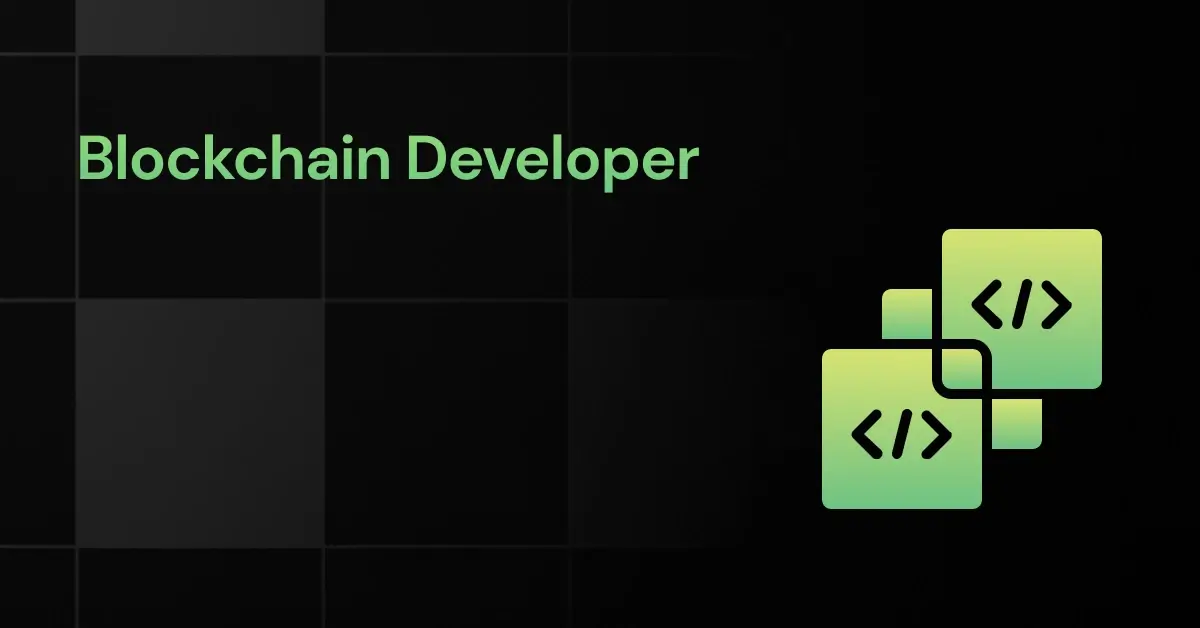Alternative Career Options for Bankers

Are you a banker considering a career shift? Have you ever wondered why so many bankers are exploring alternate career options?
The banking sector, known for its rigorous demands and high-stress environment, often leads professionals to seek new challenges and opportunities outside the traditional banking realm.
In this blog, we’ll explore alternative career paths for Bankers, offering insights into how their skills and experiences can open new doors.
Alternative Career Options for Bankers – Overview
Here’s an overview of alternative career options for Bankers with insights into transition time, starting salaries, and potential for remote work:
| S.No. | Career Options | Transition Time | Avg Starting Salary Per Annum (INR) | Potential for Remote Work |
|---|---|---|---|---|
| 1 | Data Scientist | 6-12 months | 6-12 Lakhs | High |
| 2 | Blockchain Developer | 6-12 months | 7-15 Lakhs | High |
| 3 | Business Analyst | 6-12 months | 5-10 Lakhs | Moderate |
| 4 | FinTech Product Manager | 1-2 years | 8-16 Lakhs | Moderate |
| 5 | Quantitative Analyst | 6-12 months | 6.5-14 Lakhs | Moderate |
| 6 | Investment Banker | 1-2 years | 10-20 Lakhs | Low |
| 7 | Wealth Manager | 1-2 years | 7.5-15 Lakhs | Moderate |
| 8 | Corporate Finance Analyst | 6-12 months | 6.5-12 Lakhs | Moderate |
| 9 | Credit Risk Analyst | 6-12 months | 6-12 Lakhs | Moderate |
| 10 | Treasury Analyst | 6-12 months | 6.5-13 Lakhs | Moderate |
Career Change Options for Bankers – Let’s Explore the Alternatives
Below is the list of career change options or alternative employment for Bankers:
1. Data Scientist
Data Science is a rapidly evolving field that revolves around extracting insights and knowledge from data using various scientific methods, algorithms, and systems.
For bankers, transitioning to data science can be a strategic career move, leveraging their analytical skills and understanding of financial data to excel in interpreting complex data sets.
Job Market and Demand:
- According to a report by IBM, the demand for data scientists is expected to grow by 28% by 2023.
- The data science job market in India grew by 45% in 2021, with over 93,500 job openings.
- A study by Glassdoor found that the average salary for a data scientist in India is INR 12 lakhs per annum.
Skills and Knowledge Prerequisites:
- Proficiency in programming languages like Python, R, and SQL.
- Experience with data visualization tools like Tableau and Power BI.
- Knowledge of machine learning algorithms and statistical modeling techniques.
- Familiarity with big data technologies like Hadoop and Spark.
- Understanding of data mining and data cleaning techniques.
Transferable Skills:
- Strong analytical skills and attention to detail.
- Experience in managing and interpreting complex financial data sets.
- Proficiency in risk assessment and decision-making.
- Strong communication skills for presenting data-driven insights.
- Project management and strategic planning abilities.
Starting Salary:
- The average starting salary for a Data Scientist in India is approximately between INR 6,00,000 and INR 12,00,000 per annum.
Duration for Transition:
- Typically, 6-12 months, depending on the intensity of learning and skill development.
Risk Assessment:
- Transitioning to data science involves acquiring new technical skills and adapting to a rapidly evolving field.
Work Flexibility:
- Data science roles often offer options for remote work, full-time, part-time, and freelancing opportunities.
Work-Life Balance:
- Generally favorable, but can vary depending on the company and specific role
Career Progression:
- Opportunities to advance to senior data scientist, data analytics manager, or chief data officer.
- Potential to specialize in different domains like AI, machine learning, or big data.
Job Stability and Industry Outlook:
- High job stability due to the growing reliance on data across industries.
- Positive industry outlook with an increasing emphasis on data-driven decision-making in India.
- Continued growth in demand for data science skills, especially in sectors like finance, healthcare, and IT.
2. Blockchain Developer
A Blockchain Developer specializes in developing and implementing architecture and solutions using blockchain technology.
The role is particularly appealing for bankers due to their familiarity with financial systems, attention to detail, and understanding of complex transactions, making them well-suited for the intricacies of blockchain development.
Job Market and Demand:
- The demand for blockchain developers in India is booming, with industries beyond BFSI (Banking, Financial Services, and Insurance) such as healthcare, education, and supply chain management actively seeking professionals.
- Job opportunities in blockchain technology are growing at a rate of 2,000-6,000%, with salaries being 50-100% higher than conventional developer roles.
- The average annual salary for Blockchain Developers in India ranges from ₹5,00,000 to ₹30,00,000, indicating a strong market demand.
Skills and Knowledge Prerequisites:
- Proficiency in programming languages like Java, C++, and Python.
- Strong understanding of blockchain technologies such as Ethereum and Hyperledger.
- Knowledge of data structures and cryptography.
- Experience with smart contract development.
- Familiarity with blockchain development tools like Geth, Remix, and Truffle.
Transferable Skills:
- Analytical thinking and problem-solving skills.
- Understanding of financial systems and transactions.
- Attention to detail and accuracy.
- Strong communication skills for collaboration and project management.
- Experience in managing complex data sets and security protocols.
Starting Salary:
- The average starting salary for a Blockchain Developer in India is approximately between INR 7,00,000 and INR 15,00,000 per annum.
Duration for Transition:
- Transitioning to a blockchain developer role can typically take 6-12 months, depending on the individual’s learning pace and prior experience.
Risk Assessment:
- The transition involves learning new and complex technologies, with a focus on security and decentralized systems.
Work Flexibility:
- Blockchain developer roles often offer flexible working options, including remote work, full-time, part-time, and freelancing opportunities.
Work-Life Balance:
- Generally favorable, but can vary based on the company and project demands.
Career Progression:
- Opportunities for advancement to senior developer roles, blockchain architects, or project managers.
- Potential to specialize in emerging areas like decentralized finance (DeFi) and smart contracts.
Job Stability and Industry Outlook:
- High job stability due to the increasing adoption of blockchain across various industries.
- The business value of blockchain technology is predicted to exceed $3 trillion by 2030, indicating a positive long-term outlook.
- A significant gap in demand and supply of blockchain professionals in India, highlighting strong future job prospects.
3. Business Analyst
A Business Analyst is a professional who analyzes an organization’s processes, systems, and models to help improve efficiency and solve problems.
This role is a natural fit for bankers, who often have strong analytical skills, experience in assessing financial data, and an understanding of organizational needs and processes.
Job Market and Demand:
- The demand for business analysts in India is high, with a growing need for skilled candidates who can manage data and predict market opportunities.
- Business analyst roles have seen a steady increase in demand over the past few years.
- Experienced business analysts in India can earn up to ₹1,290,000 annually, indicating a strong job market and salary potential.
Skills and Knowledge Prerequisites:
- Proficiency in data analysis and statistical tools.
- Strong understanding of business processes and workflow analysis.
- Knowledge of project management principles and methodologies.
- Experience with data visualization tools like Tableau or Power BI.
- Familiarity with SQL and database management.
Transferable Skills:
- Analytical thinking and problem-solving skills.
- Experience in financial analysis and management.
- Strong communication and interpersonal skills.
- Attention to detail and precision.
- Ability to manage and interpret complex data sets.
Starting Salary:
- The average starting salary for a Business Analyst in India is approximately between INR 5,00,000 and INR 10,00,000 per annum.
Duration for Transition:
- Transitioning to a business analyst role can typically take around 6-12 months, depending on the individual’s background and the intensity of skill development.
Risk Assessment:
- The transition involves adapting to diverse business environments and understanding new business models and processes
Work Flexibility:
- Business Analyst roles often offer flexible working options, including remote work, full-time, part-time, and contract-based opportunities.
Work-Life Balance:
- Generally favorable, but can vary based on project deadlines and organizational demands.
Career Progression:
- Opportunities to advance to senior analyst roles, project management, or consultancy.
- Potential to specialize in specific industries or in areas like data analytics or IT systems analysis.
Job Stability and Industry Outlook:
- Business analysts are in high demand in India, with companies across various sectors actively seeking professionals with problem-solving skills and data-driven insights.
- The job market for business analytics in India is projected to grow at a CAGR of 14.3% by 2026, indicating a robust and expanding field.
- Companies in India are increasingly offering competitive salaries to business analysts, particularly those with certifications or expert-level experience.
4. FinTech Product Manager



A FinTech Product Manager is responsible for guiding the development and strategy of financial technology products.
This role is a natural fit for bankers, who possess a deep understanding of financial services and customer needs, enabling them to innovate and manage FinTech products effectively.
Job Market and Demand:
- The FinTech sector in India is rapidly growing, with a projected market value of $150 billion by 2025.
- There has been a significant increase in venture capital investments in Indian FinTech startups, indicating a robust job market.
- The Indian government’s push towards digital payments and financial inclusion is further fueling demand for FinTech professionals.
Skills and Knowledge Prerequisites:
- Deep understanding of financial services and digital payment systems.
- Experience with product lifecycle management.
- Knowledge of current FinTech trends and regulatory environment.
- Skills in data analysis and customer experience optimization.
- Proficiency in Agile and Scrum methodologies.
Transferable Skills:
- Strong understanding of financial products and market dynamics.
- Risk management and compliance knowledge.
- Customer-centric approach and service orientation.
- Strategic planning and project management skills.
- Analytical and problem-solving abilities.
Starting Salary:
- The average starting salary for a FinTech Product Manager in India is approximately between INR 8,00,000 and INR 16,00,000 per annum.
Duration for Transition:
- Transitioning to this role can take about 1-2 years, depending on the individual’s background and the intensity of skill acquisition.
Risk Assessment:
- The transition involves adapting to a fast-paced and constantly evolving technology landscape.
Work Flexibility:
- FinTech roles often offer flexible working arrangements, including options for remote work, and full-time or part-time positions.
Work-Life Balance:
- Can be challenging due to the dynamic and fast-paced nature of the FinTech industry.
Career Progression:
- Opportunities to advance to senior product management roles or strategic leadership positions within FinTech companies.
- Potential to lead innovation in emerging FinTech domains like blockchain, digital banking, and payments.
Job Stability and Industry Outlook:
- High demand for FinTech professionals in India due to the rapid digital transformation in the financial sector.
- The FinTech industry is expected to continue growing, driven by technology advancements and regulatory support.
- Increasing consumer adoption of digital financial services promises a stable and promising career path in this field.
5. Quantitative Analyst
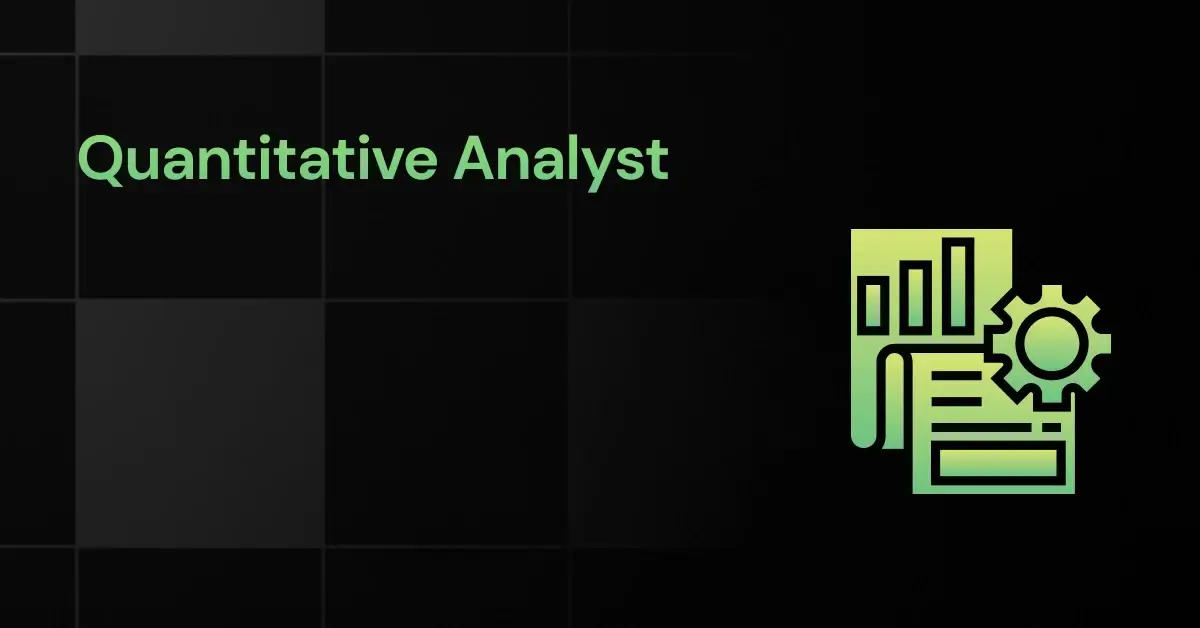


A Quantitative Analyst, often referred to as a “Quant,” specializes in the application of mathematical and statistical methods to financial and risk management problems.
This profession is a suitable transition for bankers due to their strong background in finance, risk assessment, and numerical skills, which are crucial in quantitative analysis.
Job Market and Demand:
- Over 3,000 job openings for Quantitative Analysts in India, indicating a strong and growing demand in the field.
- Quantitative Analysts are in demand across diverse sectors, including finance, technology, and research, highlighting the versatility of their skills.
- A significant number of new job positions, with 143 recently added openings, reflecting a dynamic and evolving job market.
Skills and Knowledge Prerequisites:
- Advanced proficiency in mathematical and statistical analysis.
- Strong skills in programming languages such as Python, R, or C++.
- Knowledge of financial modeling and risk management techniques.
- Familiarity with quantitative research methods.
- Understanding of derivative pricing and financial markets.
Transferable Skills:
- Analytical thinking and problem-solving abilities.
- Experience in financial analysis and modeling.
- Risk assessment and management skills.
- Attention to detail and precision.
- Strong numerical and data interpretation skills.
Starting Salary:
- The average starting salary for a Quantitative Analyst in India is approximately between INR 6,50,000 and INR 14,00,000 per annum.
Duration for Transition:
- Transitioning to a Quantitative Analyst role can take about 6-12 months, depending on the individual’s background and the intensity of training in quantitative methods.
Risk Assessment:
- The transition involves mastering complex mathematical and statistical concepts and adapting to a highly technical and competitive field.
Work Flexibility:
- Quantitative Analyst roles may offer flexible working options, including remote work and full-time positions, but are less likely to offer part-time or freelancing opportunities.
Work-Life Balance:
- The work-life balance can vary, with some positions demanding long hours and intense focus, especially in high-stakes financial environments.
Career Progression:
- Potential career advancements include roles such as Senior Quantitative Analyst, Quantitative Risk Manager, or Head of Quantitative Analysis.
- Opportunities to specialize in areas like algorithmic trading, financial modeling, or risk analytics.
Job Stability and Industry Outlook:
- Over 1,153 open positions for Quantitative Analysts in India, reflecting a stable and high-demand job market.
- Opportunities span across multiple sectors, including finance and emerging tech industries, offering diverse career paths.
- The consistent need for advanced analytical skills in financial modeling and risk management indicates a positive long-term industry outlook.
6. Investment Banker
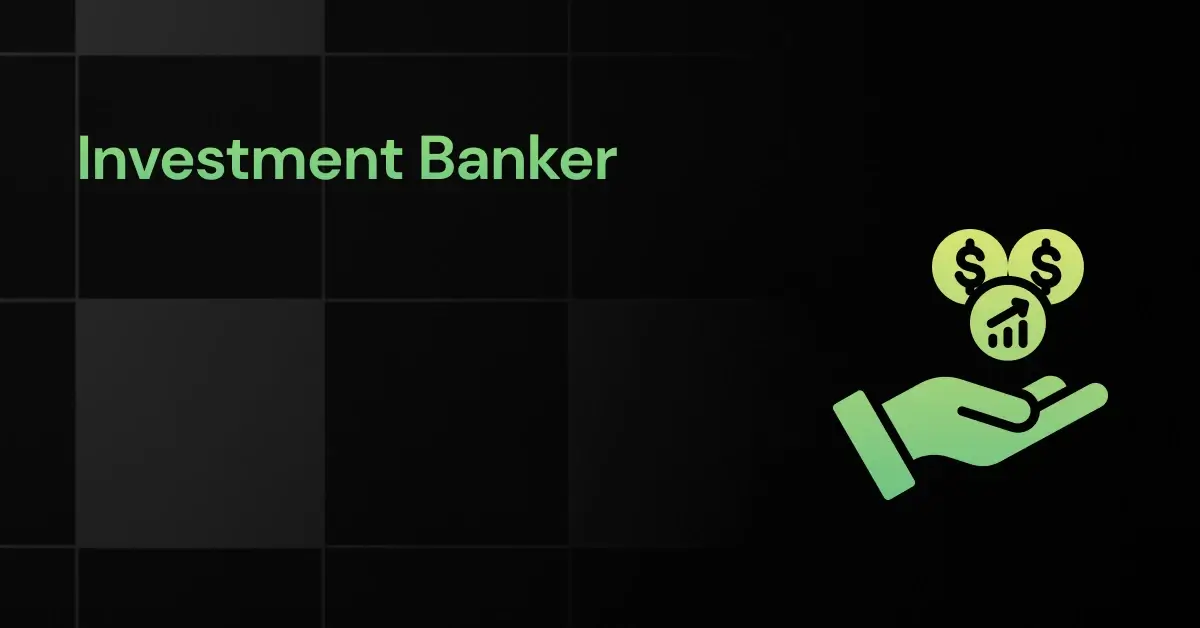


Investment Banking is a sector that deals with raising capital for individuals, corporations, and governments, primarily through underwriting or acting as the client’s agent in the issuance of securities.
For Bankers, this career path can be a good fit due to their strong interpersonal skills, understanding of organizational dynamics, and experience in managing complex projects and negotiations.
Job Market and Demand:
- The investment banking sector in India has seen significant growth in recent years, becoming an attractive career choice for finance professionals.
- Analysts in investment banking can expect a salary ranging from INR 8-12 lakhs per annum, varying based on the bank’s size and location.
- Managing Directors in investment banking can earn a salary of INR 1-2 crores per annum or more, depending on the bank’s size, location, and performance.
Skills and Knowledge Prerequisites:
- Strong analytical skills and proficiency in financial modeling.
- Deep understanding of financial markets, investment strategies, and banking products.
- Excellent communication and negotiation skills.
- Ability to work under pressure and meet tight deadlines.
- Knowledge of regulatory and compliance issues in the financial sector.
Transferable Skills:
- Strong interpersonal and communication skills for client interactions and negotiations.
- Project management experience, crucial for handling complex financial transactions.
- Analytical skills for assessing financial data and market trends.
- Strategic planning abilities.
- Risk assessment and management skills.
Starting Salary:
- The average starting salary for an Investment Banker in India is approximately between INR 10,00,000 and INR 20,00,000 per annum.
Duration for Transition:
- Transitioning to investment banking typically requires 1-2 years, depending on the individual’s background and the intensity of training and skill development.
Risk Assessment:
- The field involves high stakes and pressure, requiring a deep understanding of financial markets and regulatory environments.
Work Flexibility:
- Investment banking roles are generally office-based with limited options for remote work. They offer full-time positions with demanding work hours.
Work-Life Balance:
- The work-life balance can be challenging due to long hours and high-pressure work environments.
Career Progression:
- Opportunities for advancement to higher roles like Vice President, Director, and Managing Director.
- Potential for specialization in areas like mergers and acquisitions, equity research, or asset management.
Job Stability and Industry Outlook:
- High job stability, with a growing need for investment banking services in a rapidly expanding Indian economy.
- The diversification of industries in India, such as technology and e-commerce, is creating new opportunities for investment bankers.
- Increased foreign investment in India is further driving the demand for skilled investment banking professionals.
7. Wealth Manager



Wealth Management is a professional service combining financial and investment advice, accounting and tax services, retirement planning, and legal or estate planning for one fee.
Bankers are well-suited for this role due to their comprehensive understanding of financial products, risk management, and client relationship skills.
Job Market and Demand:
- The wealth management sector in India is expected to grow significantly due to the increasing number of high-net-worth individuals.
- There is a growing demand for personalized financial advice, driven by a more complex financial landscape.
- The rise of fintech and digital platforms is expanding the market and creating new opportunities for wealth managers.
Skills and Knowledge Prerequisites:
- In-depth knowledge of financial markets and investment strategies.
- Understanding of personal finance and wealth management tools.
- Skills in financial planning and advising on wealth management.
- Proficiency in risk assessment and management.
- Strong regulatory and compliance knowledge.
Transferable Skills:
- Expertise in financial products and services.
- Strong analytical and decision-making skills.
- Experience in client relationship management.
- Risk management and compliance skills.
- Effective communication and interpersonal skills.
Starting Salary:
- The average starting salary for a Wealth Manager in India is approximately between INR 7,50,000 and INR 15,00,000 per annum.
Duration for Transition:
- The transition can take about 1-2 years, depending on the individual’s background and the intensity of training and certification required.
Risk Assessment:
- The role involves managing client expectations and investment risks, requiring continuous learning and adaptation to market changes.
Work Flexibility:
- Wealth management roles often offer a mix of office-based and remote work opportunities, with options for full-time and consulting positions.
Work-Life Balance:
- The work-life balance can be challenging, especially when managing high-net-worth clients’ portfolios and expectations.
Career Progression:
- Opportunities for growth include roles like Senior Wealth Manager, Portfolio Manager, or Head of Wealth Management.
- Potential to develop a niche in areas like estate planning, tax advisory, or retirement planning.
Job Stability and Industry Outlook:
- Steady job stability, with a growing client base seeking financial advice and planning.
- The industry is expected to see robust growth, driven by increasing wealth creation and the need for professional wealth management services.
- Technological advancements and digital platforms are shaping the future of wealth management, offering innovative ways to serve clients.
8. Corporate Finance Analyst
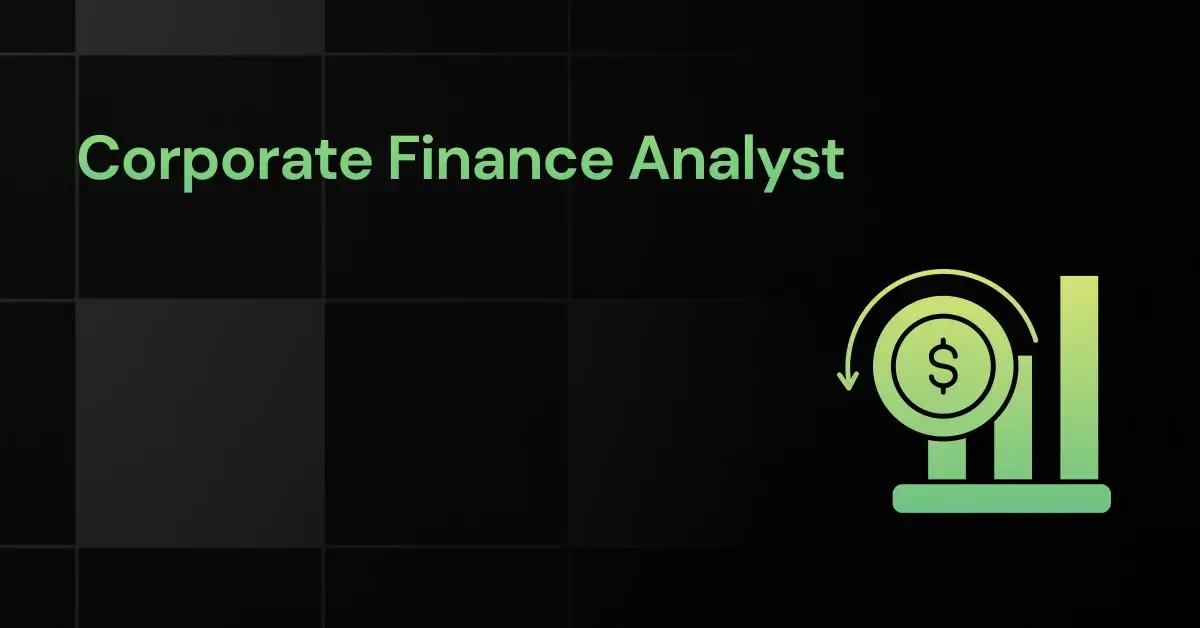


A Corporate Finance Analyst is responsible for analyzing and interpreting financial data to help companies make informed business decisions.
This profession is a natural fit for bankers, who already possess a strong foundation in financial analysis, risk assessment, and strategic planning.
Job Market and Demand:
- The finance sector in India, including roles like Corporate Finance Analysts, is experiencing significant growth, driven by increasing digitization and innovation in financial services.
- Corporate Finance Analysts are in high demand across various sectors such as accounting, investment, lending, fintech, advisory services, and corporate finance, offering a diverse range of employment opportunities.
- The integration of technologies like AI, IoT, and cloud computing in finance is transforming the sector, creating new opportunities for Corporate Finance Analysts adept at these technologies.
Skills and Knowledge Prerequisites:
- Proficiency in financial modeling and analysis.
- Strong understanding of accounting principles and financial reporting.
- Knowledge of investment strategies and market trends.
- Experience with financial forecasting and budgeting.
- Familiarity with financial software and tools, such as Excel and SAP.
Transferable Skills:
- Analytical and critical thinking skills.
- Experience in financial risk assessment and management.
- Strong attention to detail and accuracy in handling financial data.
- Effective communication skills for presenting financial insights.
- Ability to work under pressure and meet tight deadlines.
Starting Salary:
- The average starting salary for a Corporate Finance Analyst in India is approximately between INR 6,50,000 and INR 12,00,000 per annum.
Duration for Transition:
- The transition duration can vary, but typically it takes about 6-12 months to acquire the necessary skills and knowledge.
Risk Assessment:
- Transitioning to this role involves adapting to different corporate finance environments and staying updated with the latest financial regulations and trends.
Work Flexibility:
- Corporate finance analyst roles may offer some flexibility, but they typically require a standard office environment and may have limited remote work options.
Work-Life Balance:
- The work-life balance can vary, often depending on the employer and the intensity of the financial cycles.
Career Progression:
- Opportunities for advancement to senior analyst roles, finance manager, or director of finance.
- Potential to specialize in areas like mergers and acquisitions, financial planning, or treasury.
Job Stability and Industry Outlook:
- India’s financial sector has shown remarkable growth, with the financial services market size estimated to reach US$ 150 billion by 2025, indicating a stable and promising future for roles like Corporate Finance Analysts.
- The demand for financial services is rising across various income brackets, suggesting a broadening scope for Corporate Finance Analysts in different sectors.
- The integration of digital technologies in the financial sector, including the emergence of fintech and digital banking, is creating new opportunities and requiring updated skill sets for Corporate Finance Analysts.
9. Credit Risk Analyst
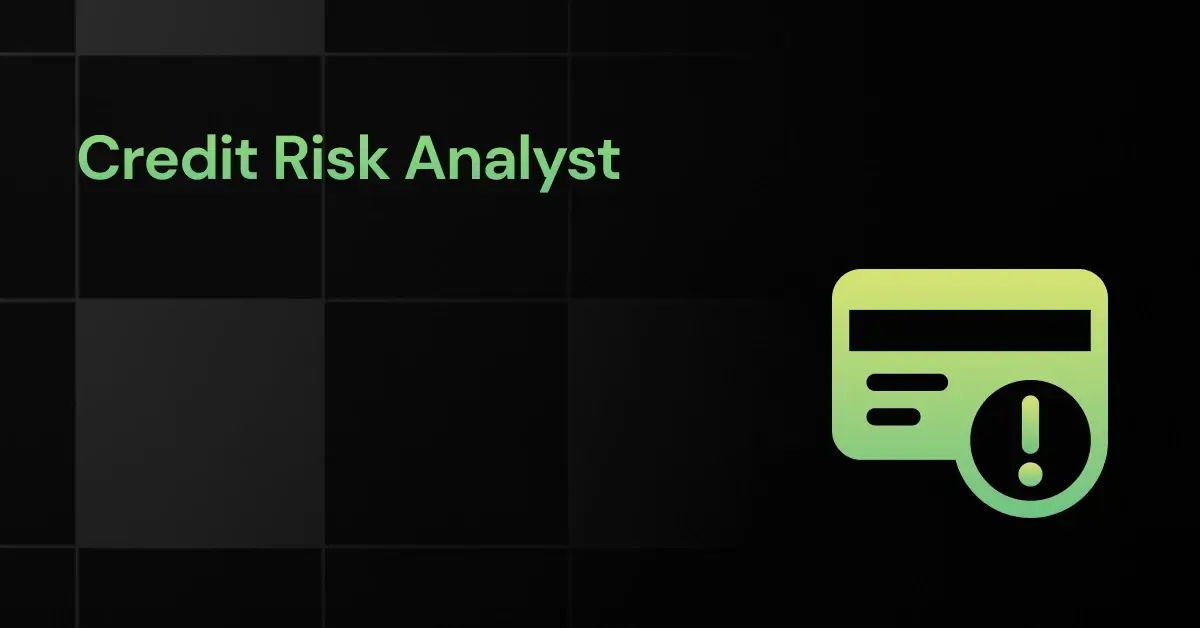


A Credit Risk Analyst specializes in assessing the creditworthiness of individuals and businesses, making informed decisions on lending based on various risk factors.
This profession aligns well with bankers due to their existing knowledge in financial risk assessment, understanding of financial markets, and experience in evaluating financial health of clients.
Job Market and Demand:
- The risk management job market, including credit risk analysts, is expanding due to globalization and complex regulatory landscapes, increasing the demand for risk professionals in various firms.
- The current job market for risk professionals has seen a notable increase compared to the pre-pandemic phase, with over 29,000 job openings on LinkedIn, 15,685 on Shine.com, and 14,155 on Indeed.com for risk management roles in India.
- Risk managers, which include credit risk analysts, earn an average salary of ₹1,005,456 per year in India, with those having 1 to 4 years of experience earning around ₹8,01,764 per annum, indicating a field with substantial financial rewards and growth potential.
Skills and Knowledge Prerequisites:
- In-depth knowledge of credit risk analysis and financial forecasting.
- Proficiency in statistical analysis and financial modeling.
- Familiarity with financial regulations and compliance standards.
- Strong analytical and critical thinking skills.
- Ability to interpret complex financial data and reports.
Transferable Skills:
- Expertise in financial analysis and understanding of market trends.
- Risk assessment and management skills.
- Detail-oriented approach with a focus on accuracy.
- Strong decision-making abilities based on financial insights.
- Effective communication skills for reporting and advising on credit risks.
Starting Salary:
- The average starting salary for a Credit Risk Analyst in India is approximately between INR 6,00,000 and INR 12,00,000 per annum.
Duration for Transition:
- The duration for transitioning to a Credit Risk Analyst varies from 6-12 months, typically shorter for those with a banking background, and longer for individuals from unrelated fields.
Risk Assessment:
- Transitioning to this role involves adapting to a more specialized focus on credit risk, requiring continuous learning about evolving credit policies and market conditions.
Work Flexibility:
- Credit Risk Analyst roles may offer varying levels of flexibility, with some positions allowing for remote work or flexible hours, while others may require a traditional office setting.
Work-Life Balance:
- The work-life balance for Credit Risk Analysts can fluctuate, often involving intense work periods, but many firms are increasingly valuing work-life balance.
Career Progression:
- Opportunities for advancement to senior analyst roles, credit risk manager, or head of credit.
- Potential to specialize in specific sectors or move into strategic risk management roles.
Job Stability and Industry Outlook:
- The operating environment for Indian banks has improved post-Covid-19, indicating a more stable and robust banking sector, which could positively impact the stability of jobs in related fields, including credit risk analysis.
- The sector’s average common equity Tier 1 (CET1) capital ratio has risen, and operating profits have increased, suggesting a healthier banking sector and potentially greater job stability for credit risk analysts.
- With India’s real GDP growth forecasted to average 6.4% annually until 2026 and a high loan growth rate, the demand for credit and, by extension, for credit risk analysis, is likely to remain strong.
10. Treasury Analyst



A Treasury Analyst is responsible for managing an organization’s financial aspects, including cash flow, investments, and financial risk management.
This role is a natural fit for bankers, as it leverages their expertise in financial analysis, risk assessment, and asset management.
Job Market and Demand:
- The job market for Treasury Analysts in India is steadily growing, with increased demand in sectors like banking, corporate finance, and government.
- There is a growing emphasis on risk management and regulatory compliance in the financial sector, which increases the need for skilled Treasury Analysts.
- The role is evolving with technology, leading to new opportunities in areas like fintech and digital asset management.
Skills and Knowledge Prerequisites:
- Proficiency in financial analysis and modeling.
- Knowledge of investment strategies and market trends.
- Understanding of risk management principles and regulatory compliance.
- Experience with financial software and data analysis tools.
- Strong skills in budgeting and financial forecasting.
Transferable Skills:
- Expertise in financial markets and products.
- Strong analytical and problem-solving skills.
- Experience in risk assessment and management.
- Proficiency in data analysis and interpretation.
- Effective communication skills for reporting and advising on financial matters.
Starting Salary:
- The average starting salary for a Treasury Analyst in India is approximately between INR 6,50,000 and INR 13,00,000 per annum.
Duration for Transition:
- Transitioning to a Treasury Analyst role can typically take 6-12 months, depending on the individual’s background and the intensity of skill development.
Risk Assessment:
- The transition involves adapting to a more specialized focus on treasury management and staying updated with regulatory changes.
Work Flexibility:
- Treasury Analyst roles may offer some flexibility, including options for remote work and flexible hours, depending on the employer.
Work-Life Balance:
- Generally balanced, but can involve periods of high demand, especially during financial reporting cycles.
Career Progression:
- Opportunities for advancement to senior analyst roles, treasury manager, or director of treasury.
- Potential to specialize in areas like corporate finance, investment management, or international treasury.
Job Stability and Industry Outlook:
- Stable job prospects due to the essential nature of financial management in organizations.
- The evolving financial landscape, including digital transformation, presents new opportunities for growth and specialization.
- As businesses increasingly focus on financial optimization and risk management, the demand for skilled Treasury Analysts is expected to remain strong.
Frequently Asked Questions
1. I want to change my career from Banking. What career change options are available for me?
Bankers have a variety of career change options available, which include:
- Explore roles in financial consulting, leveraging your expertise in financial analysis and strategic planning.
- Consider a transition into fintech, where your banking knowledge can contribute to innovative financial solutions.
- Look into corporate finance roles in various industries, utilizing your skills in managing financial operations.
2. How can bankers identify which new career path is right for them?
Think about what you like doing in banking, what you’re good at like data analysis, client interaction, or strategic planning, and what kind of new job needs those skills. Look at different jobs and see which ones fit you best.
3. Which transferable skills from bankers are most valuable in other industries?
The transferable skills from bankers are:
- Strong analytical and problem-solving skills, crucial for data-driven decision-making roles.
- Proficiency in financial management and budgeting, applicable in corporate finance and strategic planning.
- Expertise in risk assessment and compliance, valuable in regulatory and advisory capacities.
- Exceptional client relationship management, beneficial in customer-focused roles across industries.
- Solid understanding of financial markets and products, advantageous in investment and wealth management sectors.
4. How long does it typically take for a banker to transition to a new career?
The duration of the transition varies, typically ranging from a few months to a couple of years, depending on the new career path chosen and the need for additional training or certifications.
5. What are the risks associated with bankers making a career change?
Risks include the potential mismatch of skills in the new industry, the need for retraining or upskilling, and the uncertainty of job stability in a new sector.
6. How stable are the new career options for bankers?
The stability of new career options for bankers depends on the industry and role chosen. Sectors like fintech, financial consulting, and corporate finance generally offer robust career opportunities with growth potential.
7. Where can bankers find professional advice for a career change?
Banking professionals seeking a career change can find professional advice through Placement Preparation. They offer guidance on career options, skill development, and navigating the job market effectively.
Final Words
The journey from banking to alternative career paths is not just about a change in job title; it’s a transformative experience that opens up a world of possibilities. Embrace the change, and you might just find a fulfilling and rewarding new career waiting for you.
We’ll keep this article updated as new career paths open up for banking professionals. Think of it as a growing guide that changes with the times, always giving you the latest info on where your banking skills can take you next. Keep an eye on this space for more updates!
Explore More Alternative Careers for:
Related Posts
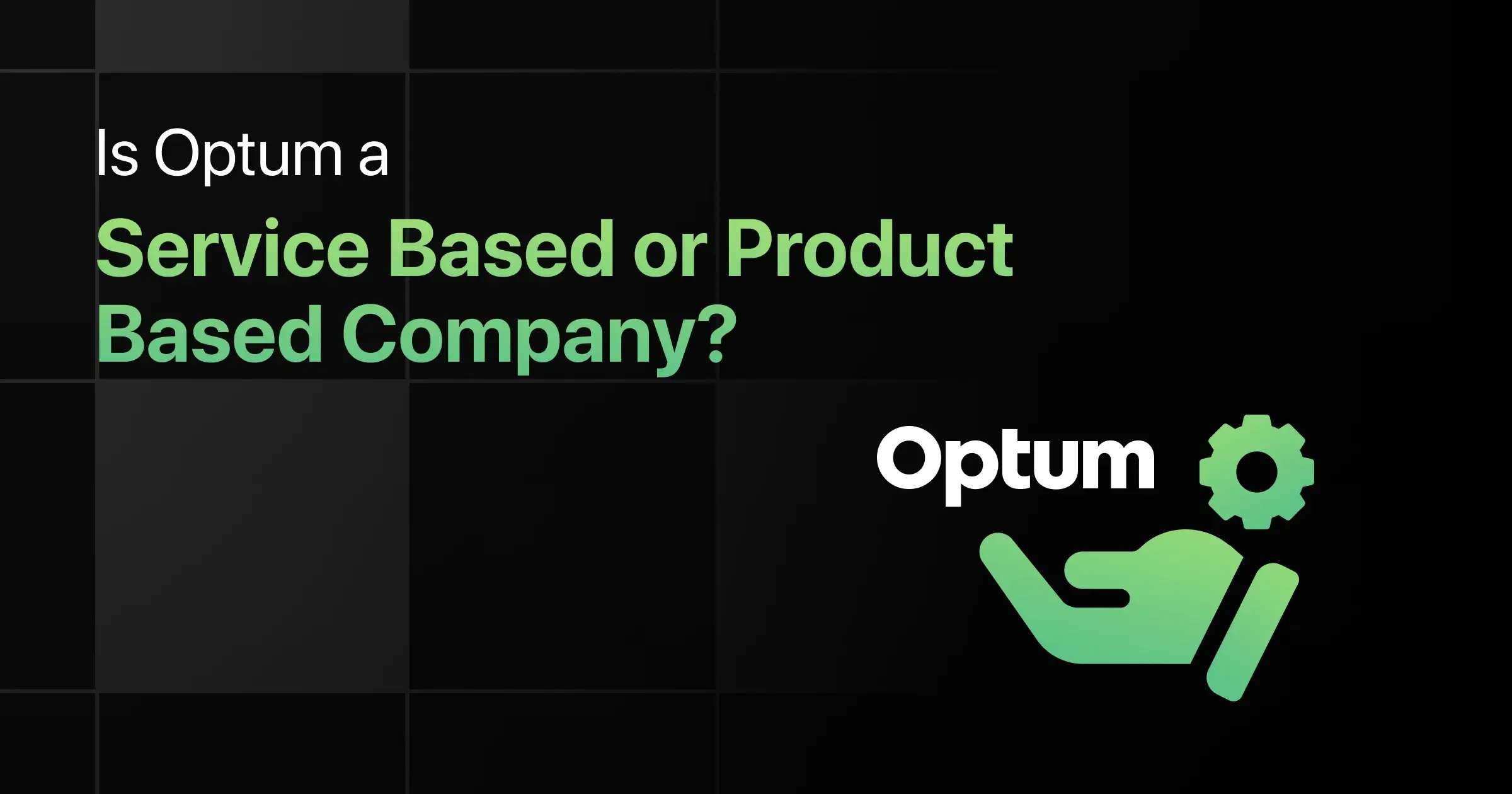

Is Optum a Service Based or Product Based Company?
Have you ever wondered what really drives Optum - is it their innovative products or their outstanding services? Founded in …


